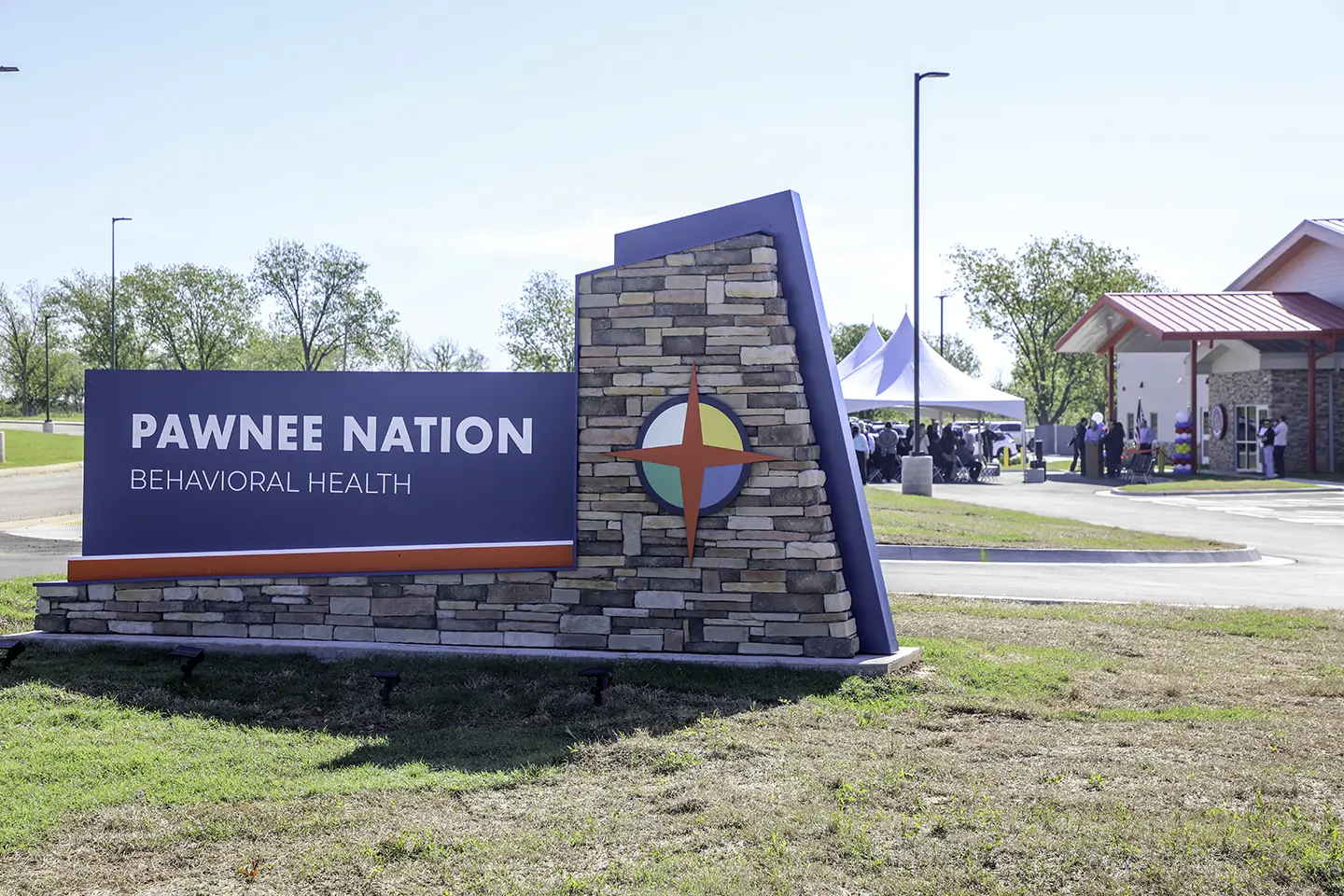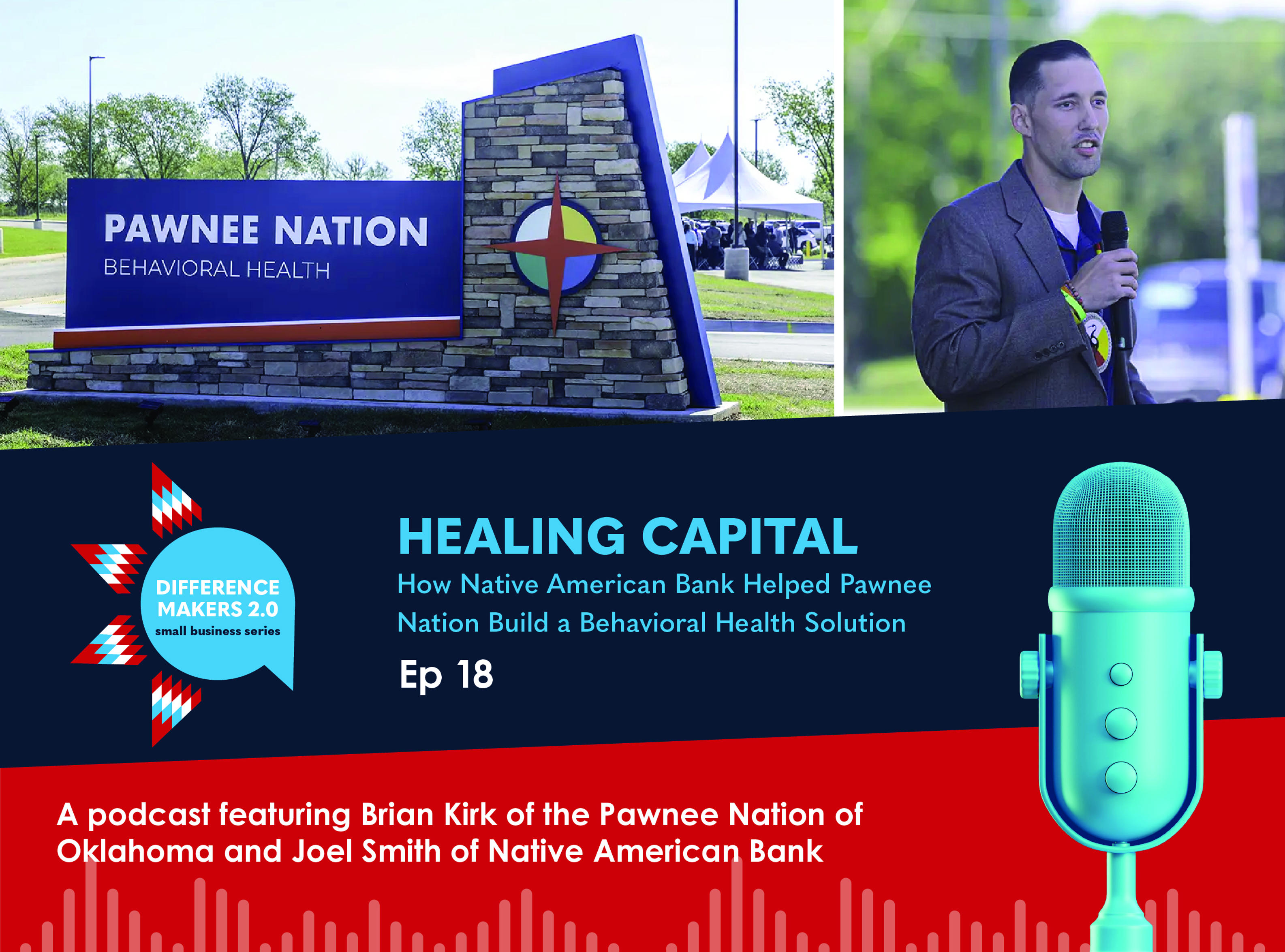
- Details
- By Native StoryLab
- Sponsored Content
The Pawnee Nation of Oklahoma is taking a significant step forward with a new behavioral health center designed to provide culturally grounded addiction treatment and mental health care for its citizens.
For the tribe, the project is one that embodies both health sovereignty and economic development, made possible by a strategic partnership and capital access through Native American Bank.
Financing major infrastructure projects can be a challenge for many tribal nations, particularly smaller tribes with limited financial assets. But for the Pawnee Nation, the answer came from Native American Bank, a Denver-based Native Community Development Financial Institution (CDFI) owned by tribal governments and Alaska Native corporations.
Joel Smith, chief credit officer and president of community development at Native American Bank, said Pawnee Nation’s behavioral health center embodies the bank’s mission.
 “This is exactly the kind of work we’re here to do—providing capital to tribal governments for transformational projects that improve quality of life and strengthen sovereignty,” Smith said.
“This is exactly the kind of work we’re here to do—providing capital to tribal governments for transformational projects that improve quality of life and strengthen sovereignty,” Smith said.
The behavioral health center marks the Pawnee Nation’s first foray into full-scale health care infrastructure. Brian Kirk, executive affairs director for the Nation, described the financing journey as “a leap of faith and a lesson in creativity.” With just 3,600 enrolled members and modest tribal assets, Kirk knew the tribe couldn’t simply borrow its way to a multi-million-dollar facility.
“We knew we had to be strategic and creative with our capital stack,” Kirk said.
The tribe began with a federal Health Resources and Services Administration (HRSA) planning grant that funded a feasibility study and community engagement process. That groundwork helped Pawnee Nation secure additional public funding, including COVID-era relief funds and American Rescue Plan Act money allocations, but the key to fully realizing the project was using New Markets Tax Credits (NMTCs) — a complex but powerful federal program designed to spur investment in low-income areas.
“Very few banks understand how to lend on tribal lands and work with NMTCs,” Smith explained. “We’re one of the few that can do both, so when Pawnee’s consultants reached out, we knew we had to be part of it.”
The tax credits function by giving private investors tax credits in exchange for equity investments in eligible projects. Native American Bank helped structure the deal in a way that allowed Pawnee Nation to blend the tax credit capital with grant funding and tribal contributions, minimizing the need for debt while still meeting the project's full financial requirements.
The process took years. Native American Bank stayed engaged throughout, helping the Pawnee Nation navigate multiple iterations of the financing structure and offering guidance on construction readiness, regulatory compliance, and long-term financial sustainability.
Smith emphasized the importance of early and ongoing engagement. “We’re not like conventional banks that say, ‘Come back when you’re shovel-ready,’” he said. “We understand the time it takes to build these projects the right way.”
For Kirk, the bank’s commitment made all the difference. “They gave us the confidence to move forward,” he said. “They weren’t just a lender—they were a partner and an educator. They helped us understand what was possible.”
With construction nearly complete, Pawnee’s behavioral health center will provide residential treatment, detox services, and intensive outpatient care—all within a culturally informed framework tailored to the community. The project represents not just a health solution, but an economic development milestone—proof that tribal nations, regardless of size, can access the capital needed to build sovereign, life-saving infrastructure.
Smith and Kirk both expressed hope that the financing model will inspire other tribal communities. “This is replicable,” Smith said. “And we’re here to help other tribes make it happen.”
“Don’t let your size or budget stop you,” Kirk added. “With the right partners, it’s all possible.”
Difference Makers 2.0 is a yearlong series that highlights how Native community development financial institutions (CDFIs) work alongside their small business clients to accelerate change and create economic opportunities in Native communities. Join the Native CDFI Network and Tribal Business News as they shine a spotlight on the people accelerating economic change in Indian Country. Read the stories here and be sure to tune into the Difference Makers 2.0 podcast.